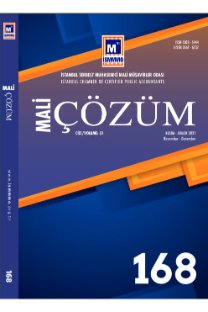Muhasebe hilelerini önlemede çözüm yolu olarak kullanılacak stratejilerin bileşenleri
Gerek kamu, gerekse özel kesimde muhasebe hilelerinin neden olduğu kayıpların artması gerçeği karşısında muhasebe hileleri ile mücadele etmek yeni ve artan bir önem kazanmaktadır. Hiç kuşku yok ki, bu mücadelede hile incelemesi, bağımsız denetim, iç denetim, anonim ihbar hatları ve hile anketi gibi araçların birlikte ve etkin bir biçimde kullanılması muhasebe hilelerinin önlenmesi ve ortaya çıkarılması olasılığını yükseltebilecektir. Ancak en az uygulama kadar yaşamsal olan bir konu ise muhasebe hileleri ile denenmiş ve doğru stratejiler kullanarak mücadele etmektir, çünkü askerî bir deyiş ile “Yığınakta yapılan hatalar (stratejik hatalar) telâfi edilemez.” ve sonuç olarak yenilgi ya da başarısızlık hemen hemen kaçınılmaz olmaktadır. Başka bir anlatımla, stratejiler hatalı olarak oluşturulur ise, mücadeleyi doğru bir şekilde uygulamak (yanlış stratejiyi doğru uygulamak) istenen sonuçları veremeyecektir. Durum böyle kabul edilir ise, doğru stratejiler oluşturulması muhasebe hileleri ile mücadeleyi kazanmanın bir önkoşulu haline gelmektedir. Doğru stratejiler belirlemek kolay bir iş olmasa da, ilgili yazında yer alan çalışmalar ve vaka analizlerini incelemek ve sonuçlar çıkarmak doğru bir başlangıç noktası olabilir. Burada muhasebe skandalları ile ilgili bazı araştırmalardan hareket edilerek Türkiye için geliştirilmesi olası bir strateji önerisinin içerebileceği bileşenler ortaya çıkarılmaya çalışılmıştır.
What components should the strategies to combat accounting frauds involve ?
The struggle against accounting frauds has been gaining a new and higher importance knowing the fact about increasing losses arising from these frauds both in the public and private sector. It is beyond any doubt that in this struggle a mixed and effective implementation of vehicles such as fraud examination, auditing, internal audit, anonymous hotlines, and fraud survey can increase the possibility of preventing and detecting accounting frauds. Nevertheless, another point which is as much important as effective implementation is to fight against frauds with tried-and-right strategies, because the errors made in the build-up (i.e. strategic errors) are not compensated in practice at all and as a result the defeat or failure is almost inevitable, as a military expression sets forth. In other words, if the strategies are badly formed, fighting in the right manner (i.e. the right implementation of wrong strategies) cannot create desired results. If this is the case, the formation of right strategies is becoming a prerequisite to win the fight against accounting frauds. Though it is not an easy task to built right strategies, examining and drawing some conclusions from prior researches and case studies in the relevant literature may be a right point to begin. Here it is presented an attempt to detect the components involving a probable strategy proposal for Turkey departing from some researches about accounting scandals.
___
- A.Imhoff, Jr, E.(2003), “Accounting Quality, Auditing, and Corporate Governance”, Accounting Horizons, (Supplement 2003) : 117-128.
- Beasley, M.S., Carcello J.V., Hermanson D.R.(1999), “Fraudulent Financial Reporting : 1987-1997, An Analysis of U.S. Public Companies”, Committee of Sponsoring Organizations of the Treadway Commission, (March 1999) : 1-67.
- Beasley, M.S., Carcello J.V., Hermanson D.R.(2001), “Top Ten Audit Deficiencies”, Journal of Accountancy. (April 2001) . 63-66.
- Beasley, M.S., Carcello J.V., Hermanson, D.R.(2001), “Financial Reporting Fraud : Could It Happen to You?” The Journal of Corporate Accounting & Finance. (May/June 2001) : 3-9.
- Eining M.M., Jones D.R., Loebbecke J.K.(1997), “Reliance on Decision Aids : An Examination of Auditors’ Assessment of Management Fraud”, Auditing : A Journal of Practice & Theory. 16, 2 (Fall 1997) : 1-19.
- Grant, C.T., Depree, C.M., Grant, G.H.(2000),“Earnings Management and the Abuse of Materiality”, Journal of Accountancy. (September 2000) : 41-44.
- Hall, J.J.(1996). “How to Spot Fraud” Journal of Accountancy. (October 1996) : 85-88.
- Lehman, C.R., Akçabol F.(2005). “Accounting for Crime” Critical Perspectives on Accounting. 16 (2005) : 613-639.
- Lekan, T.J.(2003), “Making an Auditor a Frauditor” Bank Accounting & Finance. (August 2003) : 30-32.
- Munter, P. (1999), “SEC Sharply Criticizes Earnings Management Accounting” The Journal of Corporate Accounting and Finance (Winter 1999) : 31-38.
- Wells, J.T.(2008), Principles of Fraud Examination. New York : John Wiley&Sons, Peterson B.K., Zikmund, P.E.(2004), “10 Tru
- ISSN: 1303-5444
- Yayın Aralığı: Yılda 6 Sayı
- Başlangıç: 1991
- Yayıncı: İstanbul Serbest Muhasebeci Mali Müşavirler Odası
Sayıdaki Diğer Makaleler
Ekonomik krizler sonrası yaşanan şirket iflasları ve yaratıcı muhasebe ilişkisi
Muhasebe hilelerini önlemede çözüm yolu olarak kullanılacak stratejilerin bileşenleri
CANOL KANDEMİR, ŞENOL KANDEMİR
Kobi’ler için ufrs/tfrs kapsamında temel finansal araçlar: Muhasebeleştirme ve ölçüm
